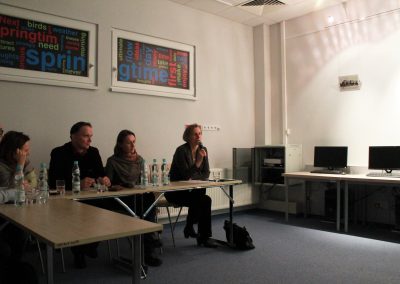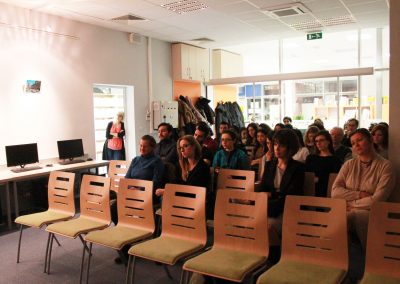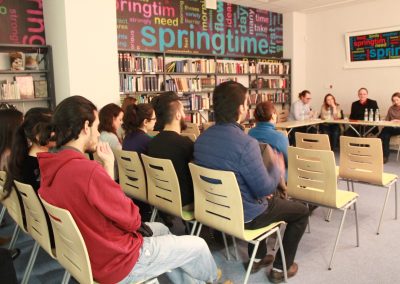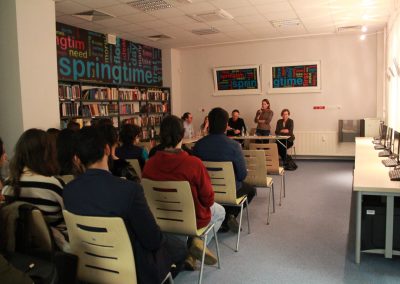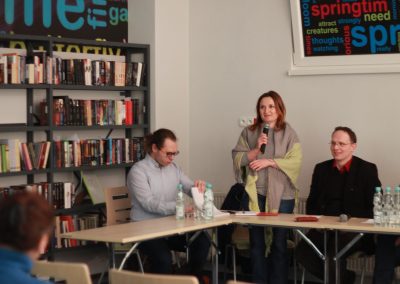On Wednesday we met in the Municipal Library Fil. 4 to participate in the debate entitled Gender ideology(ies): Man and woman – different by nature, inequal by society? We tried to find the answer to this question with our four guests: sociologists Borys Cymbrowski and Anna Czerner, philologist Katarzyna Molek-Kozakowska and biologist Elżbieta Pogoda.
We were aware that for most people the term gender is unfamiliar or even unfriendly, especially when someone is not a philologist or a social researcher, so we started with the basic questions: what gender is, how it exists in our respective fields of studies, and if there exists gender ideology. We can say that gender in general is about social consequences of being men, women or the others, because in the opinion of Elżbieta Pogoda even from a biological point of view there are more than only two sexes. And there is no evidence that one sex has an advantage over another.
In Polish media we encounter some false beliefs about the meaning of the word “gender”. But as Borys Cymbrowski mentioned it is a problem of confusion of nature with culture, because in the Polish language we have only one word (płeć) for gender and for sex. So some commentators confuse biological meaning with the cultural one. They accuse gender scholars of promoting a dangerous ideology which tries to convince people to choose their sex. As Anna Czerner said, the truth is that in the social sciences gender was a neutral category to analyse the relations between people in society, but unfortunately some institutions and politicians took one of the least popular topics in gender studies and used it as a basis to create and apply gender ideology as a political tool.
After that we focused mostly on language aspects within gender issues. Katarzyna Molek-Kozakowska indicated that for her it was easier to introduce herself in English than in Polish, because in Polish most names of academic professions have only a masculine gender, or even if it has a female gender, masculine forms sound more serious and more prestigious. But language is not a constant phenomenon – it is changing all the time. Twenty years ago we considered some female forms of words as strange, but today we take them for granted. We concluded that it is important to include more women-related forms to language, and it is one of the main catalysts of social changes in the public sphere.
We are really glad we could discuss it with you and with the citizens of Opole. We would like to thank you all for your presence and participation, and we hope to see you soon during another discussion. The aim of the whole debate was to clarify a little the problem of gender, but two hours is a short time when you are discussing such an important and complicated topic – so we treat this meeting only as a start. The debate is still open.
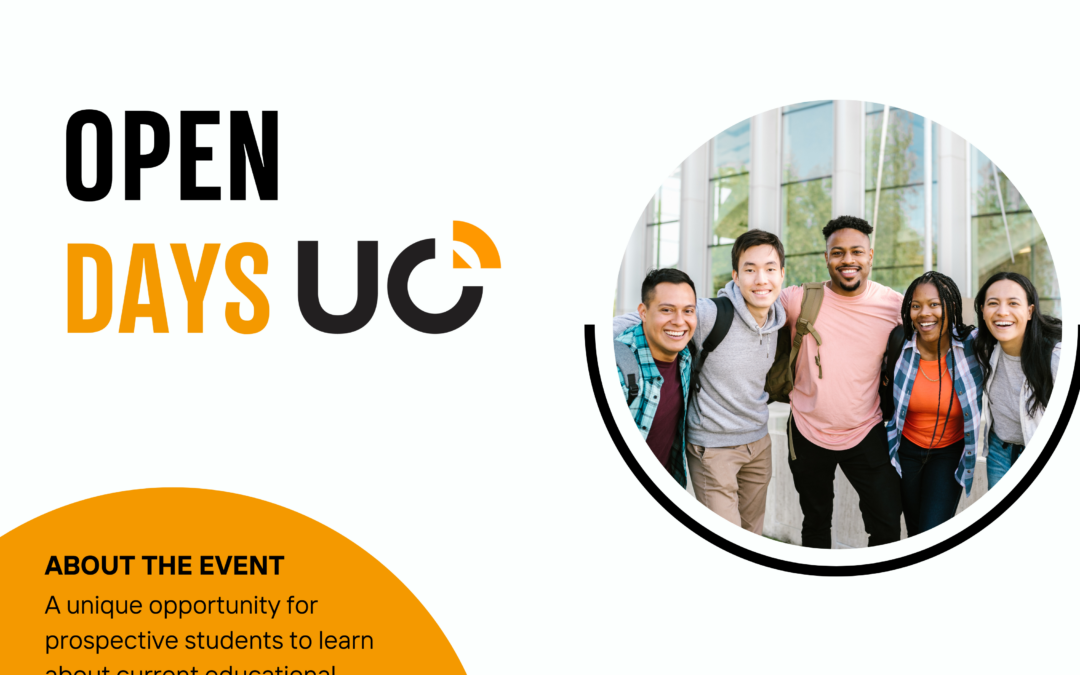
Open Days UO 2024
Dear prospective students, We are pleased to invite you to join our Open Days at the University of Opole in 2024. This is a unique opportunity to receive all necessary information regarding admission, legalization of residence, documents, and more, as well as to ask...
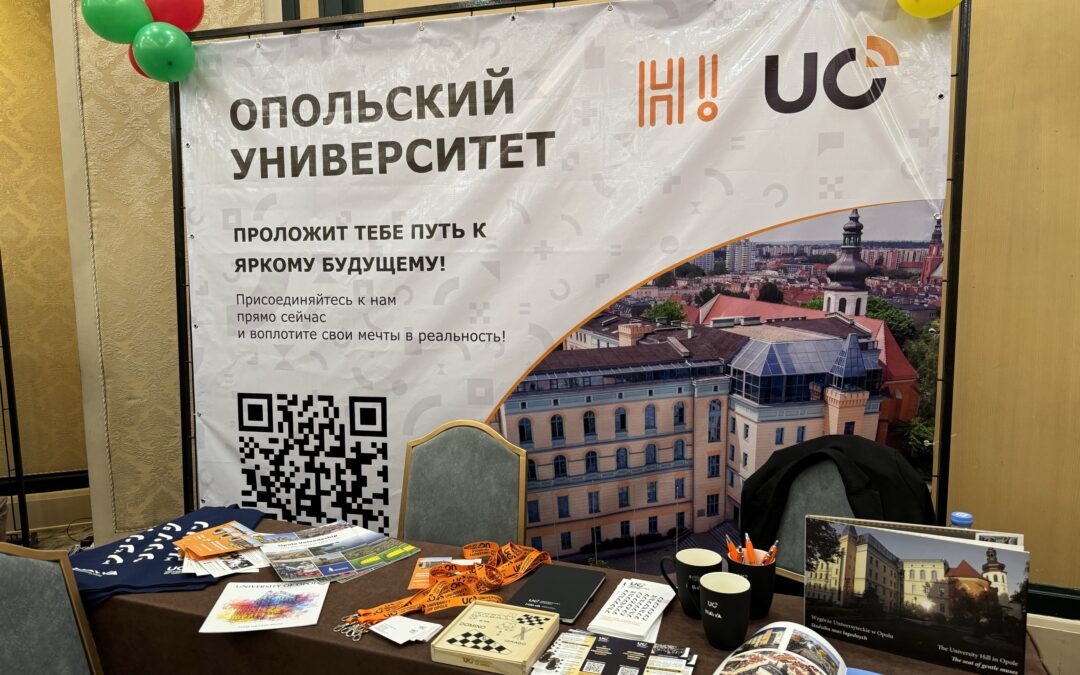
International Students Office at education fair in Uzbekistan
From 16.04 to 20.04.2024 the representatives of Foreign Students Office have been representing UO while participating in "Education and Career" education fair in Uzbekistan. During the fair our Office has been actively promoting Opole University - numerous...
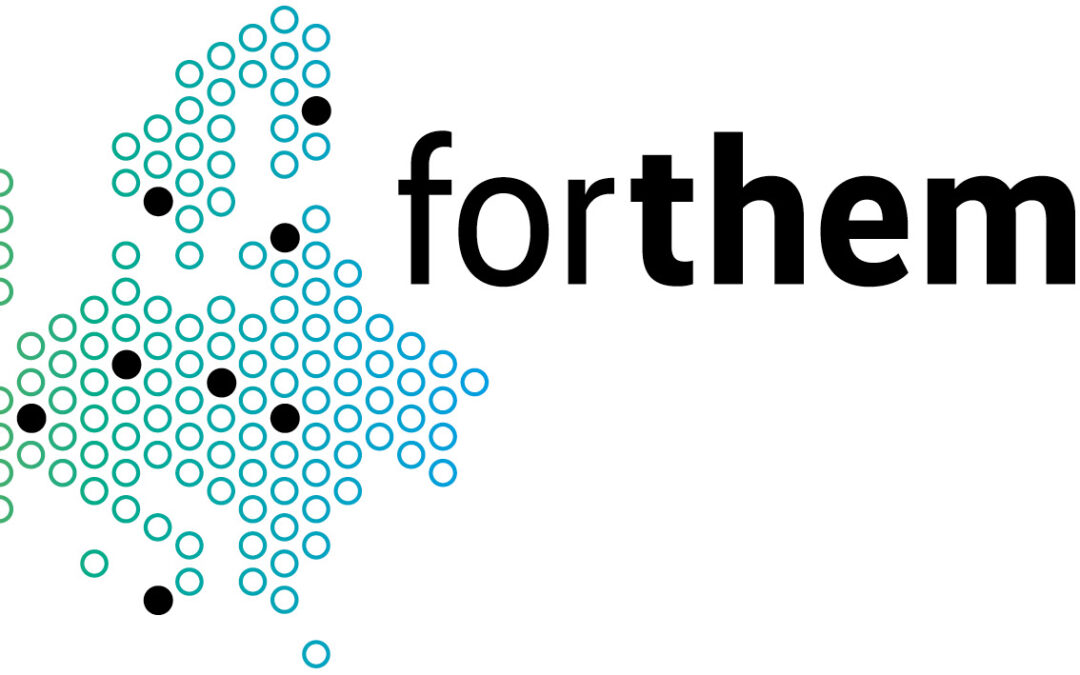
FORTHEM short-term mobility: Life & Vision
Ogłaszamy rekrutację na krótkoterminową mobilność mieszaną “FORTHEM Life & Vision”, organizowaną przez Johannes-Gutenberg Universität Mainz (Niemcy) na University of Agder (Norwegia), naszych partnerów w ramach Sojuszu FORTHEM. Warunkiem przyjęcia wniosku...
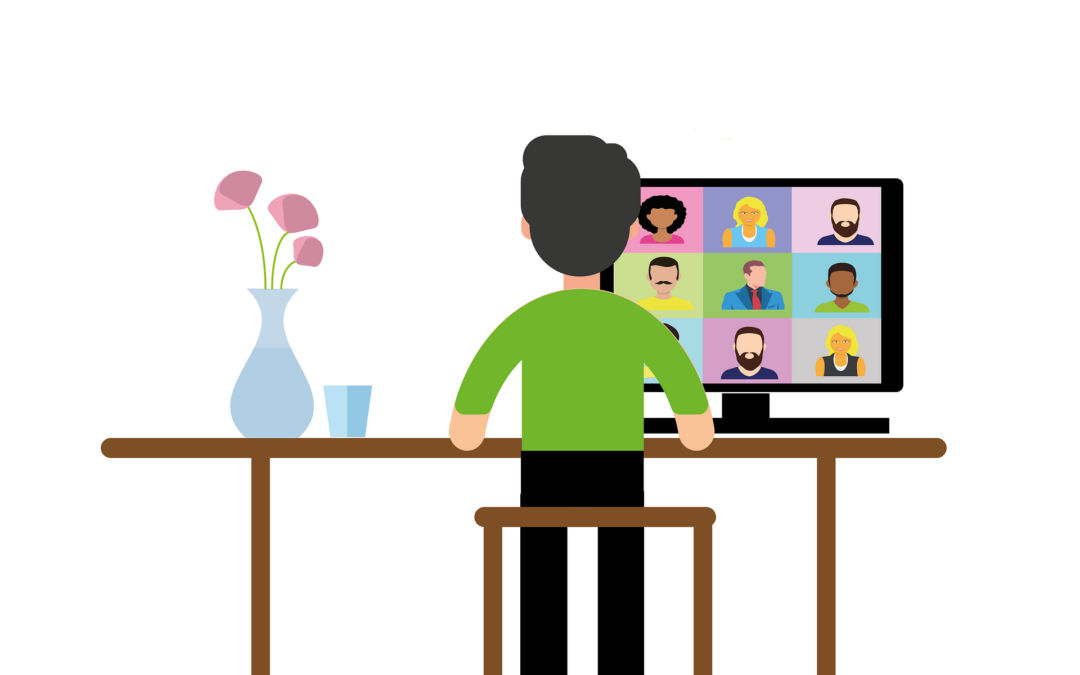
Erasmus + Office hours on 25.04.2024
On April 25, 2024 Erasmus+ office will be open until 2 p.m. Erasmus+ TeamW dniu 25.04.2024 biuro Erasmus+ będzie otwarte do godziny 14. Erasmus+ Team

Erasmus office hours on 08.03.2024
On March 8, 2024, the Office for Research and Project Management (including Erasmus+) will be open until 1 p.m. Erasmus+ TeamW dniu 08.03.2024 Biuro Nauki i Obsługi Projektów (w tym Erasmus+) będzie otwarte do godziny 13. Erasmus+ Team
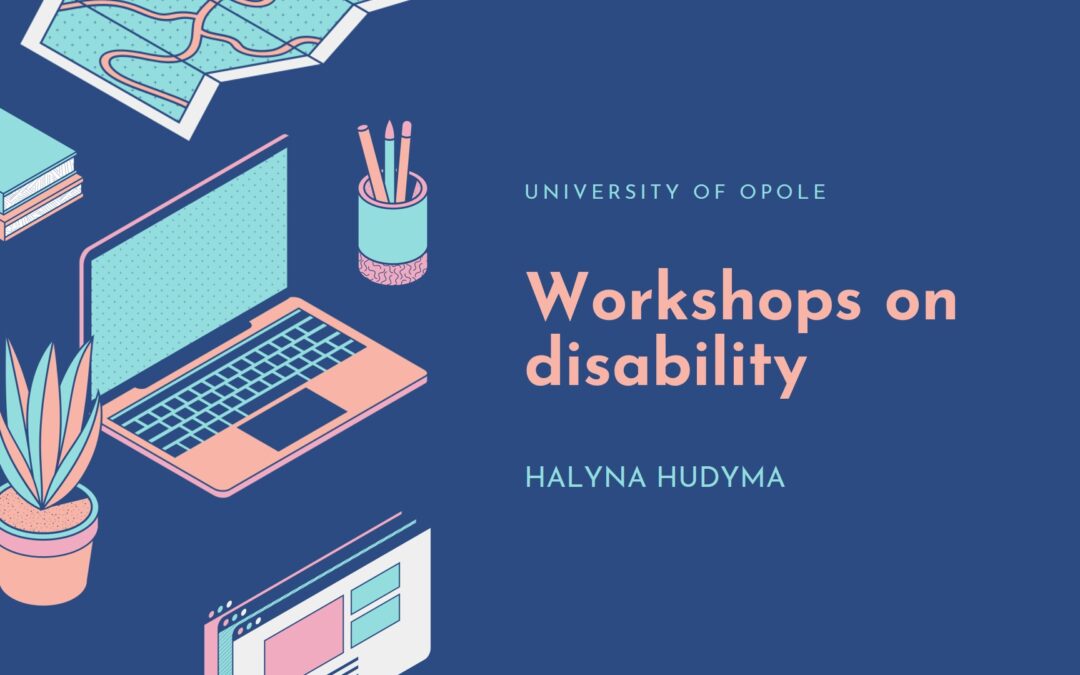
Workshops on disabilities and accessibility successfully concluded!
We have successfully concluded another workshop for students, this time on the topic of disabilities and accessibility.🤗 During the meeting students had the opportunity to get detailed information in regard to the notion of disability and the lives of people...

The second round of electronic enrolment for the university-wide variable courses
Dear Students, The second round of electronic enrolment for the university-wide variable courses in the summer semester of the academic year 2023/2024 starts on Friday, March 01, 2024. The courses, as in the previous registration, were divided into three groups:...
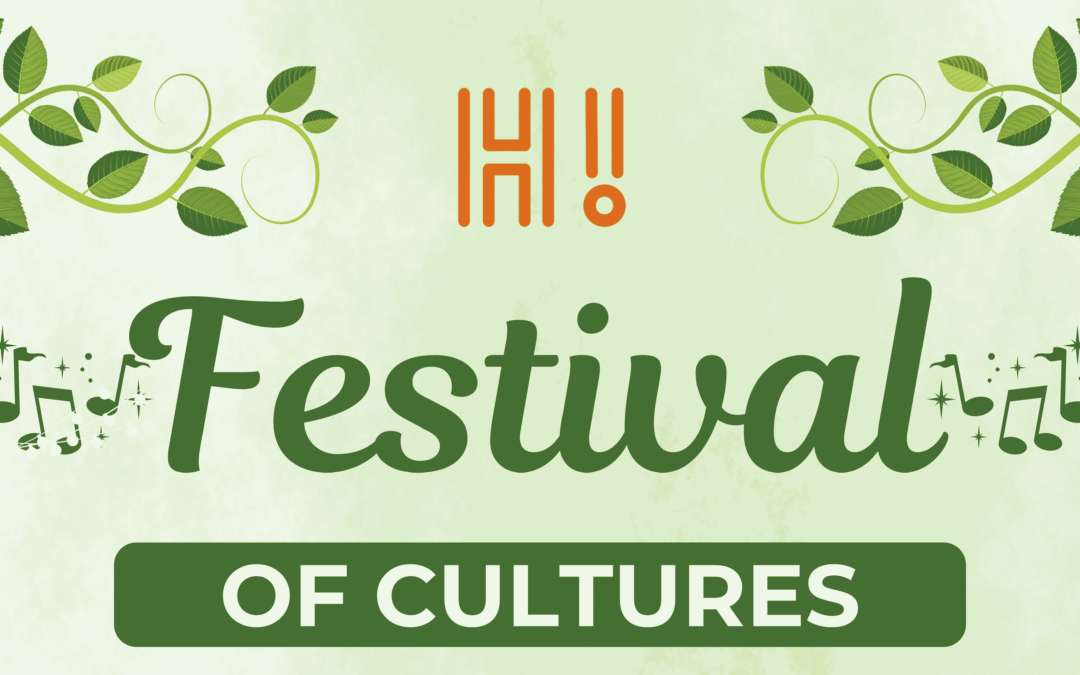
Festival of cultures
Festival of culturesDear Students! We are delighted to inform you about the upcoming event at the University of Opole - the "Festival of cultures" which will take place at the end of April or the beginning of May. The purpose of this event is to collectively...

online conference “The Development of Best Practices in Doctors of Philosophy Training”
Ivano-Frankivsk National Medical University kindly invites their international colleagues to participate in the upcoming conference "The Development of Best Practices in Doctors of Philosophy Training". The conference will be conducted in an ONLINE format. All...
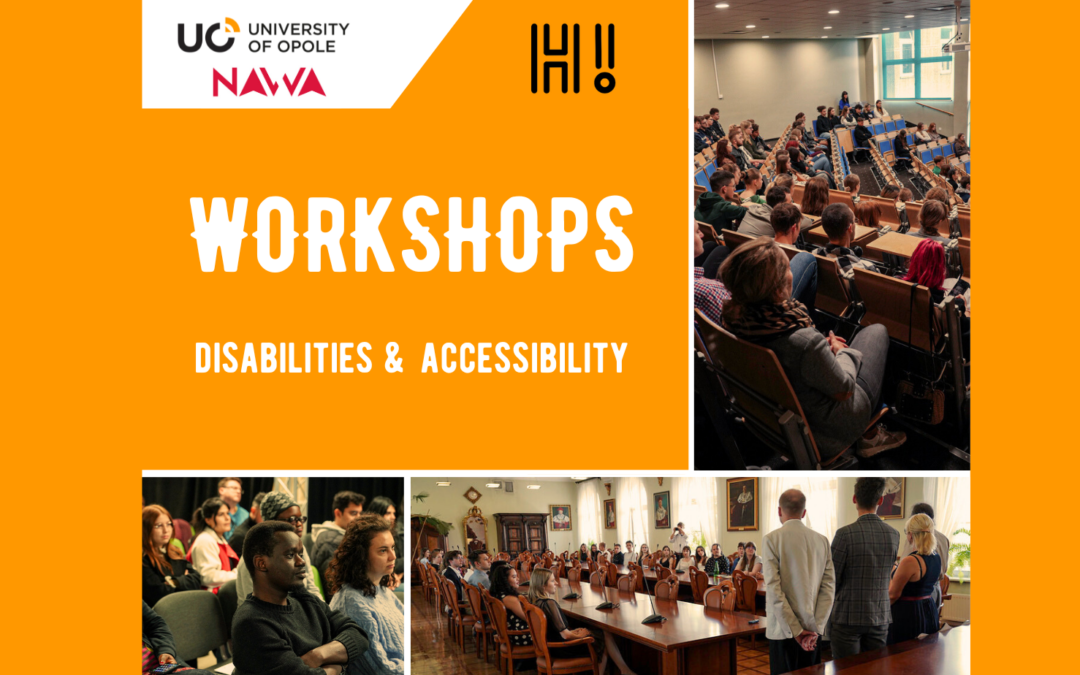
Workshop on disabilities and accessibility
We would like to invite you to register for workshops on disabilities and accessibility, organized within the project Open University of Opole – building capacity for internationalization funded by the Polish National Agency for Academic Exchange in the Welcome to...
